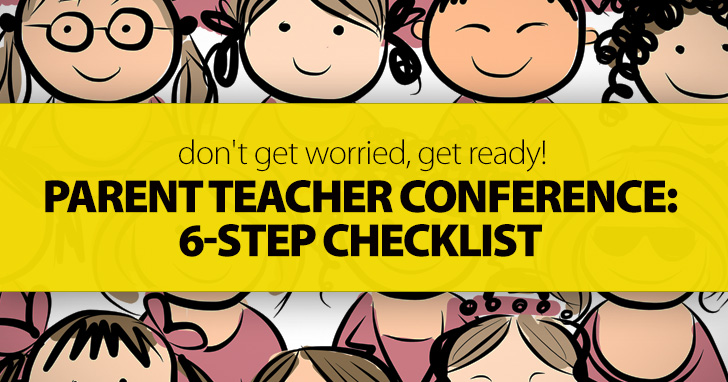6 Great Techniques to Discuss Issues with Parents


The reason for this is, meetings are simply necessary. They are the key to dealing with a variety of different situations that would otherwise go undetected. Communication is extremely important in all jobs and where children are concerned, more so. Kids either can't or if they can, rarely communicate information regarding their work at school. Even if they do, there is still a lot of information they could be leaving out. These meetings are essential for many different reasons. Take a look at the most important.
OK, so we have established why meetings are necessary, now let's get into preparing for them. As teachers you probably dread these meetings and the good news is, you don't need to. There is nothing to dread if you are prepared. Preparation is key, as with everything else. You want to show those parents you are on top of things and that you are in complete control. So, to do this, use the following checklist and you'll be ready for anything.

Before the meeting takes place, send home a form with the conference invitation and ask the parents to write down their concerns and questions about their child or general class work. Make sure to ask them to return it to you before the meeting. By doing this you'll have enough time to prepare for specific concerns parents might have. Also, this information will come in handy when you need to prepare the meeting outline.
Take a minute to thank the parents for attending the meeting and start with an outline of what will be discussed and when. This is important in any meeting since attendees need to know what to expect. Also, it's a great way to avoid interruptions from anxious parents. An efficient outline reminds parents that all their concerns will be addressed and that they should simply wait till they are.
Among doubts and concerns that parents have, what kids are seeing in class and what they will work on in the future, is at the top. That's why it is advisable to include a list of major topics that were covered and what each child should be able to do. This is very important for parents since they will be able to review what their child has done. Also, it is an amazing way for parents to see this for themselves and understand why their child isn't doing well, if that's the case.
Parents love to hear what their kids are doing well. That's why it is essential to provide parents with positive feedback regarding how the kids are doing in general. This is something you should start preparing at least a month before the meeting. A great way to do this is to keep a log of their progress and to take notes while your students are working. Then a few days before the meeting you can make a summary of your notes for each child and also point out any positive experiences they have had to date.
Keep in mind that meetings serve several purposes. Among them is to address issues or problems, in case there are any. During the general parent teacher meeting you should only mention issues that affect the group as a whole. If there are issues with one or two students in particular, you might want to address this individually with that child's parents in a private meeting.
Anything you discuss, good or bad needs to be backed up with lots of hard cold evidence. Throughout the period before the meeting make sure to collect samples that illustrate what you are telling the parents. If you don't do this, your students' parents might just dismiss your feedback as an “opinion” and they may not provide their kids with the needed support to overcome obstacles if there are any. Evidence shows parents that your feedback is backed up 100%. Work samples also provide amazing real life examples of what the children are actually working on in case parents want to practice with them as well!
Parents don't like it when you talk down to them. Give them the information they need to better understand how their kids are doing. Use positive language and avoid focusing only on the negative. Also, when there are issues, offer positive ways to help that child stop struggling and involve their parents. Sometimes we need to help parents help their kids. Try to provide ideas and games parents can use at home to work with the child. And last, meetings are not only for you to do the talking, make sure to listen to what the parents have to say! Keep in mind, their comments and opinions will open up a world of understanding for you as well.